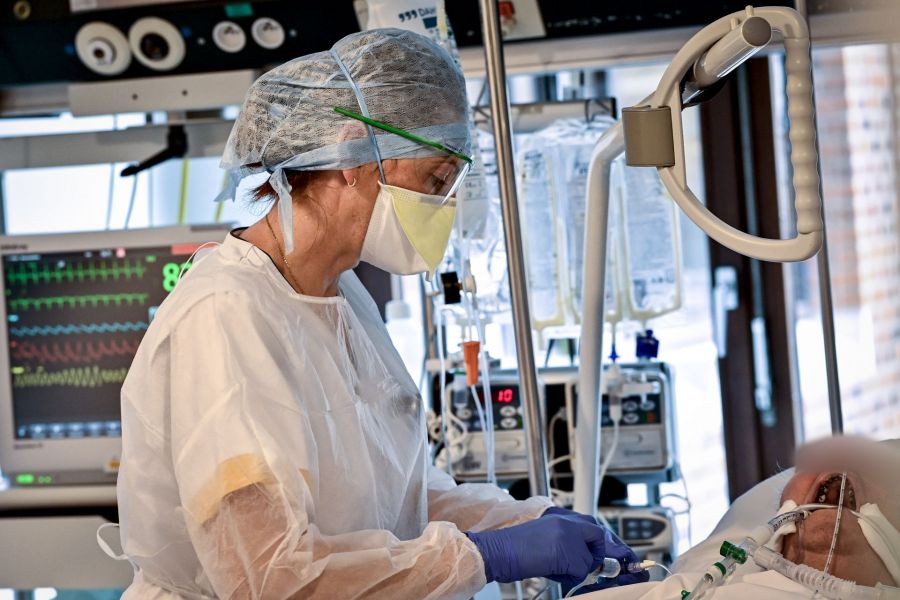More than 200 people are being hospitalised on average per day as a result of coronavirus infections, further adding to the pressure felt by health institutions during the fourth wave.
Between 4 and 10 November, an average of 204 patients suffering from Covid-19 were admitted to hospitals per day, a 24% increase since the previous week, and the highest rate since April.
On Wednesday, a total of 2,270 people were in hospitals due to an infection (124 more than on Tuesday), including 451 patients being treated in intensive care (+17), with 234 on a ventilator (+18).
Vulnerable, older people with underlying disorders, as well as younger unvaccinated people, are among those who are ending up in intensive care.
To cope with the influx of people being hospitalised as a result of the virus, hospitals have been asked to scale up to phase 1A+ and reserve one-third of their intensive care beds for coronavirus patients within two weeks.
Between 1 and 7 November, an average of 8,236 new coronavirus infections were identified every day – a 5% increase from the previous seven days, according to the provisional figures published by the Sciensano Public Health Institute on Thursday morning.
The number of tests being taken meanwhile decreased by 12% (74,687), while the positivity rate has risen by 2.2% since last week, now sitting at 11.9% - the highest rate since the end of November last year.
During the same period, an average of 22.3 people died per day from the virus, up by 3% from last week. This brings the total number of deaths since the beginning of the pandemic in Belgium to 26,261.
To curb the number of infections, people who can have been asked to revert back to teleworking, while Belgium's Consultative Committee will be meeting on Friday 19 November to discuss the worsening situation and how to deal with the fourth wave.
Related News
- Coronavirus already cost Belgium's social security nearly €20 billion
- Belgium to give entire population third vaccine dose in 2022
- Teleworking 'absolutely necessary' to avoid stricter measures
Meanwhile, the virus reproduction rate has slightly increased to 1.19. This figure represents the average number of people infected by each infected person, and when it is above 1, it means that the epidemic is gaining ground in Belgium.
The incidence, which indicates the number of new cases per 100,000 inhabitants, has increased by 79% and now sits at 975.8 over the past 14 days.
As of Tuesday, more than 8.74 million people in Belgium have received a first dose of the vaccine, representing 88% of the adult population, and 76% of the total population.
Meanwhile, more than 8.6 million people are fully vaccinated, accounting for 87% of the adult population in Belgium, and 75% of the total population.
Belgium has also started administering booster doses of coronavirus vaccines to people from certain vulnerable groups to keep the protection against the coronavirus sufficiently high. As of Tuesday, more than 756,000 people had received such a dose. The general population will receive a booster dose of a coronavirus vaccine next year.

